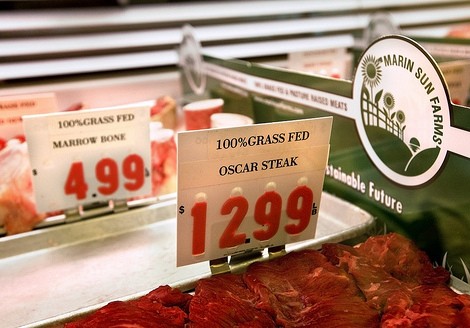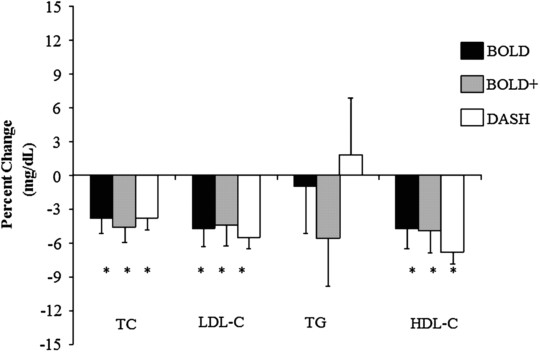Beef is often included on a short list of foods which are purported to increase the risk of various diseases. Among the health concerns expressed about beef is a supposed correlation between red meat consumption and cardiovascular disease. However, a just published study in the American Journal of Clinical Nutrition begs to differ with this prevalent theory. In the trial, a group of participants with high cholesterol were fed one of four diets for 5 weeks. Those receiving a diet known as BOLD+, comprised of 28% fat, 27% protein and includes 153 grams of beef/day, demonstrated greater improvements in several cardiovascular risk factors than subjects receiving lower beef and protein diets. According to the authors of the study, these findings “provide support for including lean beef in a heart-healthy dietary pattern”.
Before you get too enthusiastic about beef, it’s worth noting that another recent investigation determined that replacing beef with other protein sources may lower stroke risk. An evaluation of over 84,000 women determined that substituting beef with chicken, fish or nuts lowered the relative stroke risk in women by -27%, -17% and -17% respectively. What may be surprising to some is that replacing beef with legumes did not result any significant benefit. In the analysis, low and whole fat dairy products afforded a more modest 10% – 11% reduction in risk.
The importance of adequate protein is also highlighted in three additional publications from the past few months. The first reports that replacing carbohydrates with protein is an effective means of lowering blood sugar, body fat and weight in women with polycystic ovary syndrome or PCOS. The experimental diet in question contained >40% calories from protein and 30% calories from fat. Another trial revealed that a high protein, low calorie diet outperformed a carbohydrate-rich, low calorie diet by reducing fat cell volume and several cardiometabolic indicators in obese adults. Finally, the fear that some have about dietary protein promoting bone density loss also appears to be largely unfounded. The December issue of the journal Clinical Nutrition draws an inverse link between higher protein intake and fracture risk in seniors. In particular, greater consumption of animal protein was associated with a decreased incidence of fractures. This observation held true regardless of calcium intake.
To learn more about the studies referenced in today’s column, please click on the following links:
Study 1 – Beef in an Optimal Lean Diet Study: Effects on Lipids, Lipoproteins, … (link) Study 2 - Dietary Protein Sources and the Risk of Stroke in Men and Women … (link)
Study 3 – Effects of Increased Dietary Protein-to-Carbohydrate Ratios in Women … (link)
Study 4 - Differential Effects of Macronutrient Content in 2 Energy-Restricted … (link)
Study 5 - Protein Intake and Fracture Risk in Elderly People: A Case-Control Study … (link)
Diets Rich in Lean Beef (BOLD+) May Improve Some Cardiovascular Risk Factors
Source: Am J Clin Nutr January 2012 vol. 95 no. 1 9-16 (link)





0 yorum:
Yorum Gönder